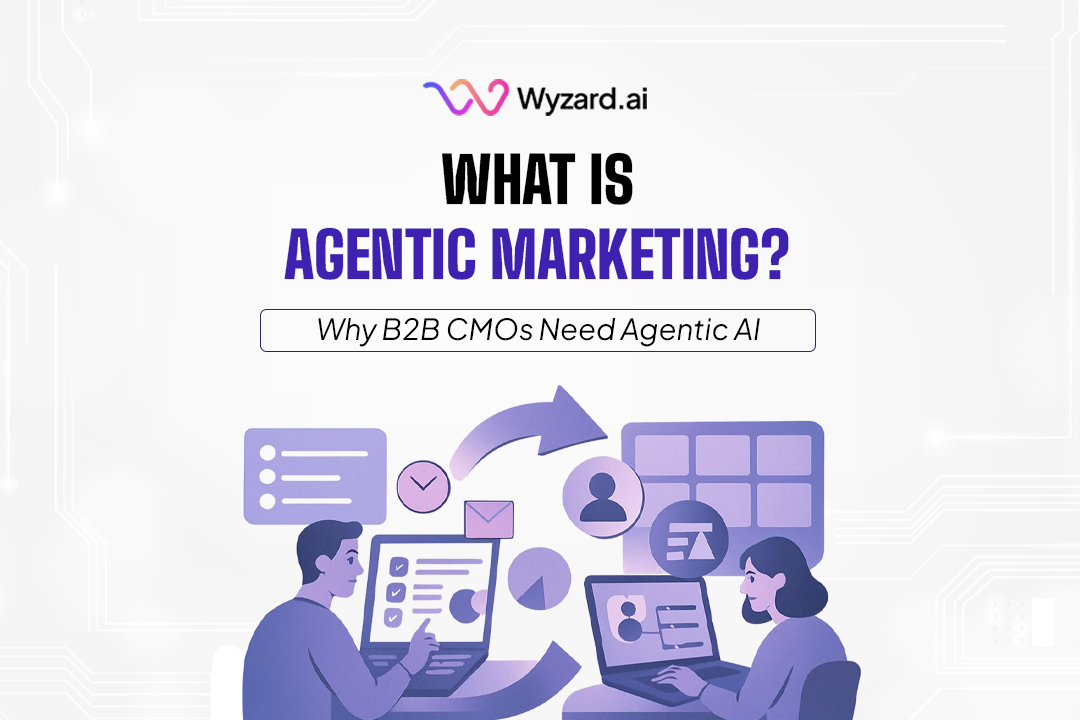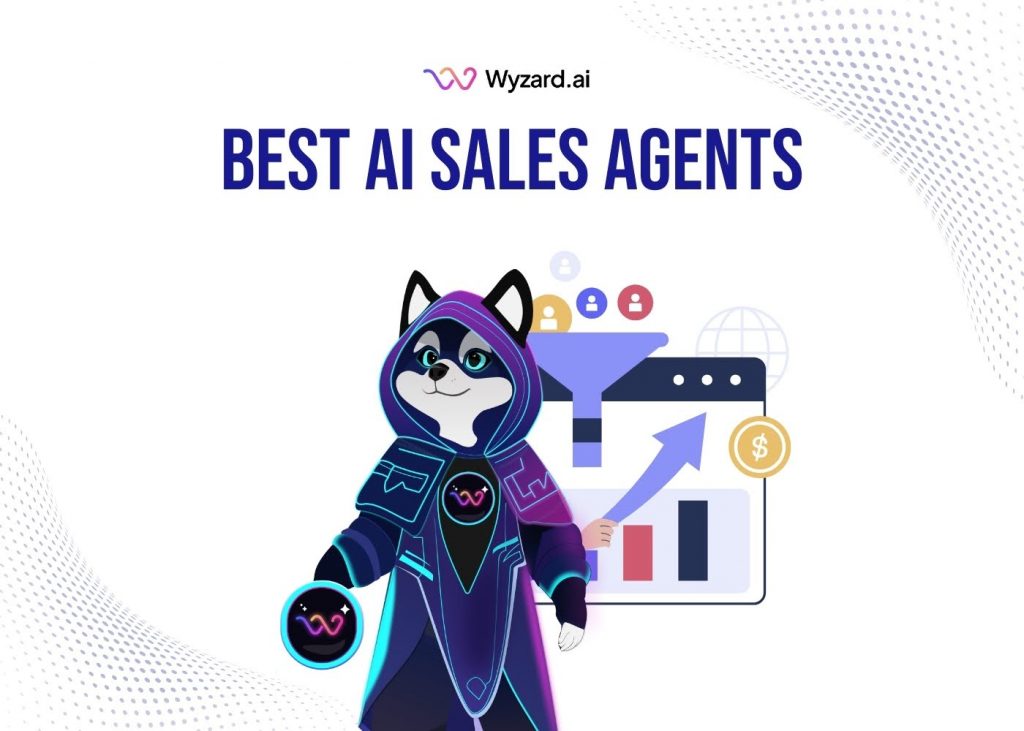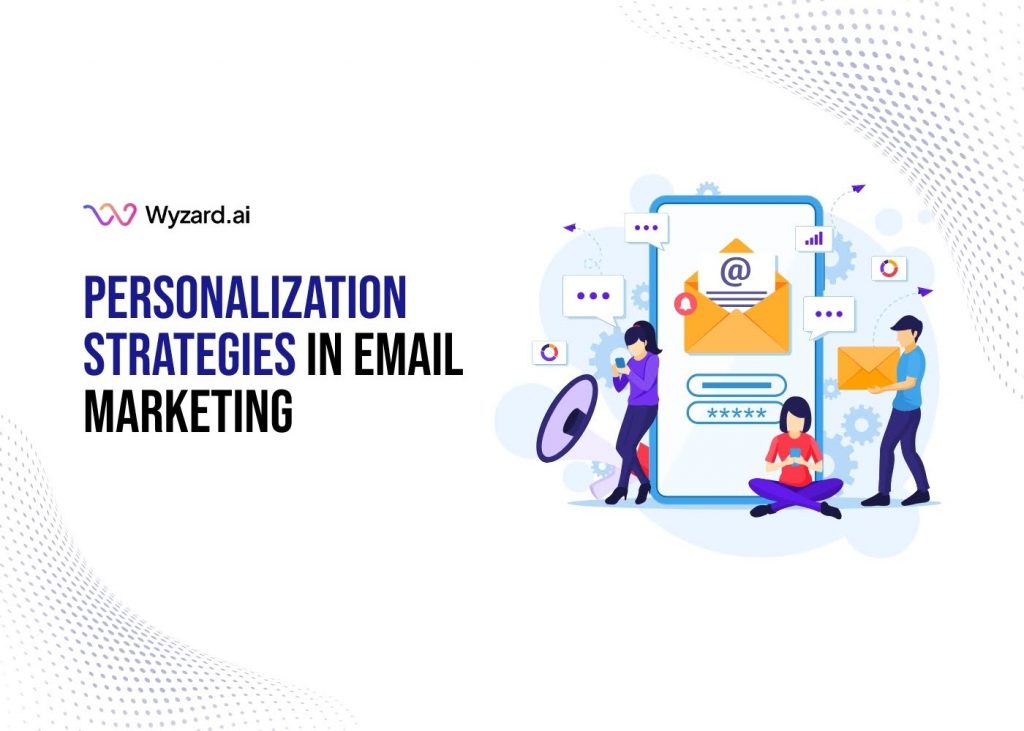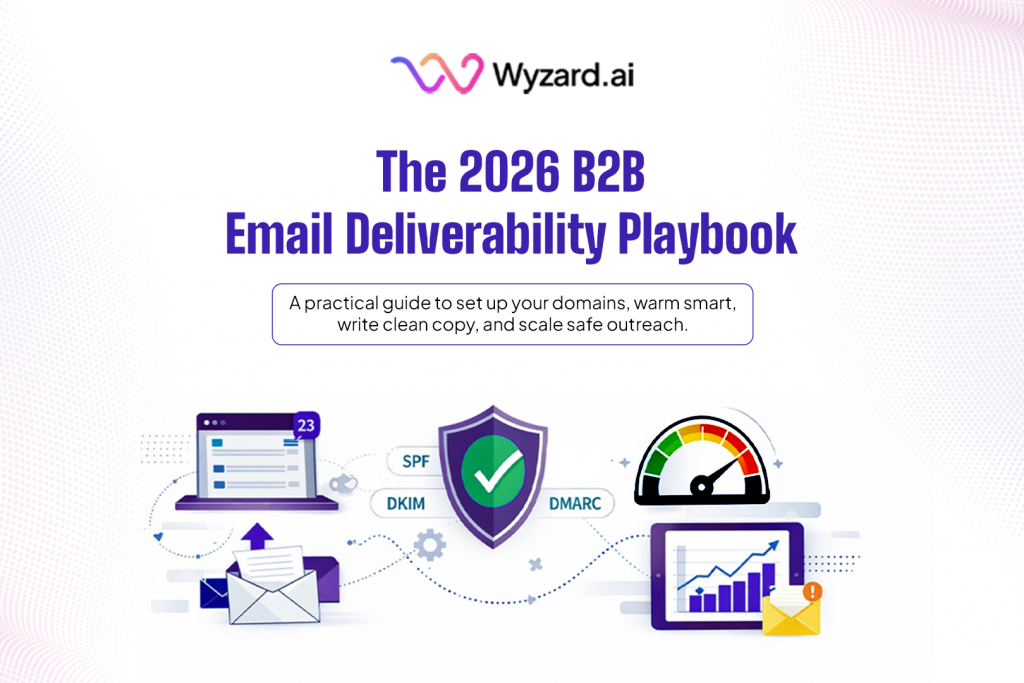Sales teams lose deals every day because buyer signals get buried in disconnected tools. Someone downloads your pricing guide ...

Subscribe Now
For many SaaS companies, the challenge has been clear: inbound traffic is abundant, but converting that traffic into high-quality leads remains a struggle. Marketing teams often find themselves juggling multiple tasks, capturing visitor interest, nurturing warm leads, and ensuring that the best prospects reach the sales funnel. The manual processes often lead to lead leakage, slower qualification times, and an overloaded sales team.
Enter agentic marketing, an innovative strategy that uses autonomous AI agents to engage with prospects, analyze behavior, and optimize marketing workflows in real time. Built on a foundation of simplicity, efficiency, and personalization, agentic marketing transforms your marketing efforts from reactive to proactive.
What is Agentic Marketing?
Agentic marketing involves using AI-powered agents to execute, monitor, and optimize marketing campaigns without constant human oversight. Unlike traditional marketing automation systems that require manual adjustments and oversight, agentic marketing leverages advanced AI to perform strategic tasks autonomously. Whether it’s sending personalized emails, managing website interactions, or analyzing real-time data, these AI agents act as intelligent teammates, driving execution without constant oversight.
Key Characteristics of Agentic Marketing
- Autonomous Operation: AI agents work 24/7, engaging with visitors, nurturing leads, and executing marketing tasks across channels such as email, chat, and web interactions.
Example: Agentic chatbots that engage visitors contextually and hand off qualified leads to sales without human intervention. - Dynamic Optimization: The system continuously analyzes real-time data to adjust campaigns. If a particular message isn’t resonating, the AI can pivot strategies on the fly, ensuring that every engagement is optimized.
Example: Adjusting ad targeting based on live campaign performance data. - Personalization at Scale: By understanding user behavior and context, agentic marketing delivers customized content and interactions that engage prospects on a personal level, increasing conversion rates.
Example: Sending tailored follow-up emails based on a visitor’s actions on your website. - Workflow Automation: Complex marketing processes from lead qualification to customer journey orchestration, are automated, allowing your team to focus on strategic planning.
Example: AI-powered SDRs that qualify leads from website interactions and hand them off to human teams seamlessly.
How Agentic AI is Reshaping B2B Marketing
Agentic AI is more than just a tool, it’s a strategic partner that redefines marketing operations for B2B companies. Here’s how it works in the modern marketplace:
The Role of AI in B2B Marketing
- Real-Time Engagement: AI systems are designed to interact with visitors at the exact moment of interest. Whether a potential customer is browsing your website or clicking through an email, the AI engages immediately, capturing valuable leads before they lose interest.
- Data-Driven Decisions: By continuously analyzing vast amounts of data, agentic AI offers deep insights into customer behavior. This helps marketers make informed decisions about campaign adjustments, targeting strategies, and content personalization.
- Efficiency and Productivity: The automation of repetitive tasks such as lead scoring, email responses, and campaign monitoring means marketing teams can focus on high-level initiatives. Freed from busywork, marketers can dedicate more time to creativity and strategy.
- Predictive Analytics: Beyond reacting to current trends, AI can forecast future opportunities. By understanding patterns and customer signals, agentic AI helps businesses stay ahead of market trends, ensuring that marketing strategies are always one step ahead.
Why Do We Need Agentic AI in Marketing?
Without agentic AI, marketing teams face bottlenecks that slow down lead qualification and personalized outreach. Traditional automation might send scheduled emails or static chat responses, but it lacks the agility to adapt in real time.
Agentic AI is needed to:
- Engage visitors instantly with intelligent, context-aware responses that capture interest and lead data.
- Bridge the gap between marketing and sales by ensuring that every high-intent lead is immediately qualified and passed on to the right team member.
- Optimize campaigns dynamically, ensuring that every marketing dollar is spent efficiently while improving conversion rates.
- With constant, 24/7 engagement, agentic AI ensures that no lead is left behind, accelerating the overall sales cycle.
Why B2B CMOs Need Agentic AI
For B2B CMOs in the SaaS space, the demands are clear: improved inbound performance, automated lead qualification, and increased pipeline efficiency. Here’s why shifting to agentic AI can be a game changer:
Addressing Key Pain Points
- Manual Processes Drain Time: Traditional marketing requires human intervention for campaign management, lead follow-ups, and performance tracking. Agentic AI takes over these repetitive tasks, freeing up your team to work on strategic initiatives.
- Lead Leakage is Costly: When high-intent leads slip through due to slow responses or disjointed processes, it directly impacts your revenue. With 24/7 engagement, agentic AI ensures that every visitor is captured and nurtured.
- Scalability Challenges: As your SaaS company grows, manual processes simply can’t keep up with the volume of leads and customer interactions. Agentic AI scales seamlessly, handling ever-increasing interactions while maintaining personalized engagement.
- Data Overload: Sorting through vast amounts of data to extract actionable insights is overwhelming. Agentic AI processes this data in real time, offering clear, data-driven guidance that optimizes every aspect of your campaigns.
Key Benefits for B2B CMOs
- Increased Efficiency and Productivity:
- Automate routine tasks such as email responses and lead qualification.
- Allow for continuous, around-the-clock customer engagement.
- Scalable Personalization:
- Deliver context-aware, personalized content based on real-time behavioral data.
- Enhance customer satisfaction by meeting individual needs instantly.
- Data-Driven Decision Making:
- Gain real-time insights that inform smarter marketing strategies.
- Reduce uncertainties with predictive analytics that forecast market trends.
- Strategic Advantage:
- Position your brand as a leader in adopting innovative marketing techniques.
- Stay agile in a rapidly changing market by continuously optimizing campaigns.
Agentic Marketing Strategy
Implementing an effective agentic marketing strategy involves clear planning and leveraging the right technologies. Below are some best practices and examples that illustrate how agentic AI transforms marketing efforts.
What is an Agentic Marketing Strategy?
An agentic marketing strategy focuses on using AI agents to drive every stage of the customer journey. Rather than simply automating existing processes, it involves having AI act as an independent marketing copilot to:
- Engage: Interact with website visitors and email responders in real time with context-aware conversations.
- Qualify: Analyze behavioral data to determine the quality and readiness of leads, ensuring that only the best prospects are passed to the sales team.
- Convert: Orchestrate personalized customer journeys that lead to higher conversion rates and improved customer satisfaction.
What Are Agentic Marketing Examples?
Consider the following real-world examples of agentic marketing in action:
- AI-generated emails that adapt the message based on individual behavior and engagement history, ensuring higher open and click-through rates.
- AI chatbots that engage visitors immediately, answer frequently asked questions, and capture lead information during off-hours.
- Continuous monitoring of ad performance to dynamically adjust targeting and creative elements, ensuring campaigns remain cost-effective.
- Mapping out detailed customer journeys and sending the right message at the right time, enhancing the overall customer experience.
- Agents that qualify leads 24/7 and automatically pass high-intent leads to the sales team for further action.
How to Implement an Agentic Marketing Strategy in Your SaaS Business
Implementing agentic marketing requires a mix of planning, technology integration, and continuous optimization. Here’s a practical guide to get started:
Steps to Get Started
- Define Your Goals:
- Identify pain points in your current marketing workflow (e.g., slow lead qualification, manual follow-ups).
- Set clear objectives for what you want to achieve with agentic AI, such as improving pipeline velocity or boosting inbound engagement.
- Integrate with Existing Systems:
- Connect your CRM, marketing automation platform (MAP), and other tools with your agentic AI solution for seamless data flow.
- Ensure that the AI can access real-time data from your website, email campaigns, and other touchpoints.
- Start Small:
- Pilot the solution on a specific part of your funnel, such as engaging website visitors or automating follow-up emails.
- Use real-world data to see the impact before scaling across the entire marketing operation.
- Measure and Optimize:
- Monitor key performance indicators (KPIs) like lead engagement, conversion rates, and customer satisfaction.
- Continuously refine the AI’s strategies using A/B testing and real-time analytics.
- Train Your Team:
- Ensure that your marketing and sales teams understand how to interpret AI-driven insights.
- Foster a culture where AI augments human decision-making rather than replacing it.
Implementation Checklist for Agentic Marketing
- Define target audience and inbound traffic sources
- Integrate agentic AI with your existing marketing and CRM systems
- Launch a pilot program for key touchpoints (e.g., website chat, email)
- Regularly review data and optimize AI strategies
- Scale the solution incrementally as you validate success
Key Takeaways
In summary, agentic marketing is transforming how B2B SaaS companies engage with and convert leads.
Here are the critical takeaways:
- Uses autonomous AI agents to execute and optimize marketing activities, reducing manual intervention.
- Enhances efficiency, scalability, and personalization—key areas of improvement for SaaS marketers facing inbound performance challenges.
- By integrating real-time data analysis and automated workflows, agentic AI streamlines lead qualification and accelerates pipeline velocity.
- Examples include personalized emails, autonomous website engagement, and continuous ad optimization, all of which are vital for improving marketing ROI.
- Address the critical pain points of slow lead conversion, manual processes, and scalability challenges while maintaining a competitive edge in today’s fast-paced digital market.
- As a dedicated inbound-only marketing copilot built for SaaS companies, Wyzard.ai offers real-time, intelligent engagement that drives better outcomes without the complications of outbound prospecting.
Conclusion
By incorporating agentic marketing into your strategy, you’re not only keeping up with the demands of modern SEO and inbound marketing but also positioning your brand to achieve higher efficiency, increased ROI, and faster time-to-market, a critical advantage in today’s competitive SaaS landscape.
Feel confident, stay informed, and leverage the power of agentic AI marketing to drive your business forward.
Book a demo with Wyzard.ai today and let our always-on marketing copilot become your competitive edge in the market!
FAQ
Agentic marketing is the use of autonomous AI agents to execute, monitor, and optimize marketing tasks. It goes beyond simple automation by handling complex workflows such as personalized email campaigns, real-time website engagement, and data-driven campaign adjustments without constant human oversight.
Personalized Email Campaigns: AI-generated emails that adapt based on user behavior.
Autonomous Chat: Real-time website chatbots engaging with potential leads 24/7.
Dynamic Ad Optimization: Adjusting ad targeting and creative elements based on live performance data.
Customer Journey Orchestration: Automated tailoring of the path a customer takes from interest to conversion.
We need agentic AI to speed up lead engagement, ensure continuous 24/7 customer interaction, reduce manual tasks, and make data-driven decisions that improve campaign performance. This is particularly crucial for SaaS companies facing high inbound traffic but struggling with lead leakage and manual workflows.
AI in B2B marketing analyzes real-time data, personalizes customer interactions, automates repetitive tasks, and drives strategic decisions. It empowers marketers to focus on high-level strategy while the AI handles engagement and optimization across multiple channels.
Traditional marketing automation follows preset rules and workflows with regular human oversight, whereas an agentic marketing strategy uses AI agents that operate independently. This results in real-time, adaptive engagement, personalized communication, and a more efficient lead qualification process.
Other blogs
The latest industry news, interviews, technologies, and resources.
Personalization Strategies in Email Marketing
Most B2B SaaS teams know generic email blasts don't work. But there's a wide gap between a first-name merge ...

2026 B2B Email Deliverability & Marketing Playbook
Email still drives B2B pipeline in 2026, yet inbox placement has gotten harder and deliverability now ties straight to ...

 We’ve secured funding to power Signal-to-Revenue AI to GTM teams globally. →
We’ve secured funding to power Signal-to-Revenue AI to GTM teams globally. →


